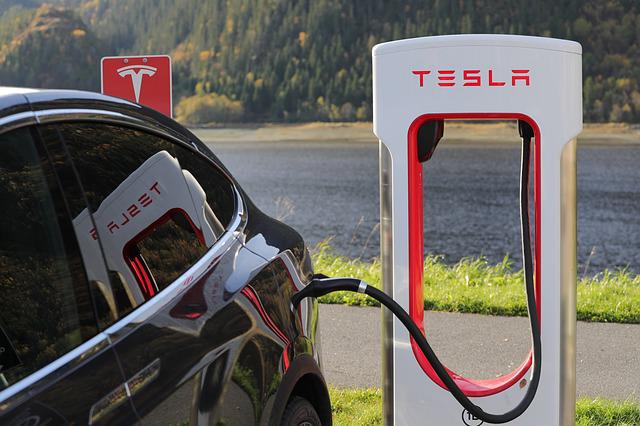Missing the Point: Using Tax Credits to Encourage the Purchase of Electric Cars
Without even a hint of hyperbole, we are – every mother’s son and daughter of us – in the midst of a still-worsening existential crisis. The adjective says it all. The threat is to our existence. It’s real and profoundly serious. In case you’ve been living under a rock, we humans have managed to cause the warming of our planet’s atmosphere toward increasingly unacceptable levels. If we don’t stop the process, it’s going to mean the end of life as we know it. Imagine the United States with all of its coastal cities under water. Soon. Not in some distant future none of us alive today cares about.
“Aren’t you being overly-dramatic?”
Well, maybe a tad, but if I were you, I wouldn’t invest in any oceanfront beach property right now – unless it’s in Garrett County.
Scientists say that global warming is increasing much faster than they had anticipated. At the very least, we need to get our collective tushes in gear and do something about it before it’s too late.
We, here in America, have certainly contributed more than our fair share to causing the climate crisis – due, in large part, to our affection for fossil fuel burning automobiles. We need to switch from gasoline-powered to electric cars as soon as possible.
Unfortunately, that’s easier said than done. Electric cars are expensive. Actually, that’s not really the problem, is it? We’re the problem. It’s not that there aren’t any affordable options although currently even compact electric cars with limited features list for over $30,000, before tax credits. The real problem is that current battery technology limits the per-charge range of most electric cars to distances well less than their gas-powered counterparts. Not to mention that the latter can be refueled as if you were at a NASCAR pit stop, while electric cars take much longer.
The less expensive the car, the shorter the range. And who wants to make extended stops once or twice on your way to visit Nana and Granddaddy who live more than a full charge away? Who wants to drive around in cars that are less comfortable and not as safe as the larger gasoline-powered ones we traded-in to save the earth for humans? Who wants a car that needs to be tethered to a cord all night like some giant cell phone?
Whatever the reasons, too many of us are waiting for some future generation of electric cars to emerge. Waiting, while global temperatures continue to rise. We need to suck it up and adjust our sensibilities accordingly. Guilty as charged, by the way, which is why I’m so familiar with these arguments. Will replacing our gas-powered car with an electric one take some getting used to? Some inconvenient accommodations? Yeah, well we need to stop whining and get over it. The reality of the climate crisis demands nothing less.
The government has acknowledged the importance of incentivizing the purchase of electric cars. From the consumer’s point of view, the mechanism government has selected is a tax credit of up to $7500 on new electric cars.
To be precise, when you purchase a qualifying electric car, you’ll receive a credit of up to $7500 that you can use to offset taxes you owe for the year in which you buy the car. If, for example, you owe taxes of only $4000, then that’s the tax credit you can use. The other $3500 is lost. You can’t carry the unused tax credit forward to offset future taxes.
The $7500 is not, in other words, a fixed subsidy, a discount that everyone buying an electric car can enjoy regardless of how much tax the buyer owes.
And so, you may be asking yourself, “If the government is really serious about stopping global warming, why offer tax credits instead of an outright subsidy?”
In a word, the answer is “marketing.” A $7500 tax credit sounds like a bigger deal than it really is. Forget about various administrative issues too boring to discuss. People hear “$7500 tax credit” and that’s the amount they think they can save when they buy the electric car of their dreams. Impressive, but not true for many lower and some middle-income households.
Note that the new law caps the tax credit at $4000 for people buying used electric cars – as if those car batteries are going to last forever. Who buys used electric cars assuming you can find one? Lower income families and middle-income households purchasing a second vehicle who can’t afford the prices of new ones.
Simply put, if the government gave everyone buying any new electric car a flat-out $7500 subsidy, regardless of how much or little they earn, it would cost the government more, much more than offering a tax credit of up to $7500. Unfortunately, a tax credit incentive will result in far fewer electric cars purchased, predominantly by people who can afford them because they can use the full tax credit. What you want is a $7500 subsidy that lowers the price of electric cars by that amount for everyone.
By denying so many prospective buyers the benefit that their more financially successful counterparts will enjoy, the tax credit for electric cars is, to coin a phrase, a “regressive incentive.”
For the sake of discussion, let’s say that people buying a $45,000 electric car will get the full $7500 credit, while people buying a $35,000 electric car will only get a $5000 tax credit because that’s all the taxes they owe. In effect, people buying the less expensive electric car that lists for $35,000 are paying $2500 more than they would pay under a subsidy. Higher income families buying the $45,000 electric car enjoy the same $7500 either way.
In other words, the tax credit discriminates against families making less money in favor of higher income consumers who, as it turns out, were already more inclined to purchase an electric vehicle than their lower income counterparts. If anything, subsidies should be scaled to favor lower and middle-income families for whom incentives to switch to electric cars, new or used, need to be greater. The way it works now, tax credit incentives actually discourage the purchase of less expensive electric cars which misses the point of the entire program.
Assuming the climate crisis is as serious as scientists say it is, this is no time to be nickel and diming the solution. Garrett County here we come.

Les Cohen is a long-term Marylander, having grown up in Annapolis. Professionally, he writes and edits materials for business and political clients from his base of operations in Columbia, Maryland. He has a Ph.D. in Urban and Regional Economics. Leave a comment or feel free to send him an email to [email protected].

